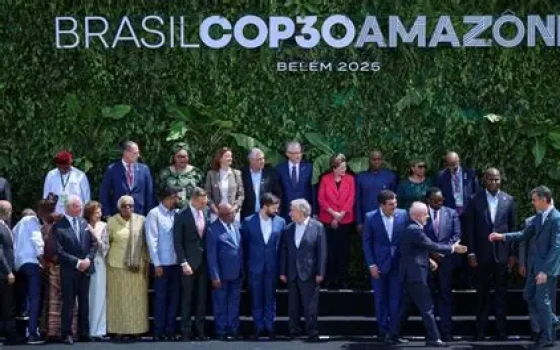
COP30 Climate Change Conference Under the Slogan "No More Negotiations, Time for Action"

- Europe and Arabs
- Monday , 10 November 2025 9:31 AM GMT
Belém, Brazil: Europe and the Arabs
The 30th United Nations Climate Change Conference (COP30) opens today, Monday, in Belém, in the Brazilian Amazon, with a clear message: it is time to move from negotiation to action. According to the UN daily news bulletin, a copy of which we received, the conference focuses on implementing previous commitments, increasing climate finance to $1.3 trillion annually, reviewing national climate plans, adopting climate change adaptation indicators, and advancing the agenda for a just transition.
"No more negotiations, it's time to act." The Conference of the Parties to the UN Framework Convention on Climate Change is being described as a watershed moment, a moment of truth, and a test of solidarity, as it brings together world leaders and negotiators amid mounting evidence that the planet is on track to exceed the 1.5°C temperature rise limit set in the Paris Agreement above pre-industrial levels.
Scientists say this overshoot could be short-lived—if countries act decisively to accelerate climate change mitigation and adaptation efforts and finance climate action. In his address at the Leaders' Summit preceding the conference, UN Secretary-General António Guterres said, "There is no more time for negotiations. It is time for action, action, and more action."
Under Brazil's presidency, the climate conference is centered around an action agenda of 30 key objectives, each managed by an "activation group" tasked with identifying and scaling up effective solutions.
This collective effort has been dubbed "mutirão"—an Indigenous word meaning "collective task"—reflecting Brazil's commitment to showcasing Indigenous leadership and participation throughout the conference.
How can sufficient funds be mobilized?
The agendas of UN climate conferences are based on voluntary pledges, and achieving the scale required for climate change necessitates at least $1.3 trillion in climate investments annually by 2035. Without urgent action, scientists predict that global temperatures will rise between 2.3 and 2.8 degrees Celsius by 2100, rendering vast areas uninhabitable due to flooding, extreme heat, and ecosystem collapse.
The “Baku-Belem Roadmap Report,” prepared by the presidencies of the 29th and 30th Conferences of the Parties (COP29) in Baku and Brazil, respectively, will be central to discussions in Belem. The report identifies five priority areas for mobilizing the necessary resources.
Among the proposals are: strengthening the six multilateral climate funds established over the past decades; enhancing international cooperation in taxing highly polluting activities; and converting sovereign debt into climate investments, which could unlock up to $100 billion for developing countries. The report also calls for the removal of obstacles, such as investment treaty clauses that allow companies to sue governments for adopting climate policies that may affect their business interests. According to the report, governments have already lost $83 billion in 349 such disputes.
What's important at COP30?
◀️A key focus in Belém is the final round of Nationally Determined Contributions (NDCs), national climate plans that outline how each country intends to reduce its greenhouse gas emissions.
To keep global warming below 1.5°C, emissions must be reduced by 60% by 2030. However, current contributions will only achieve a 10% reduction.
◀️Delegates in Belém are also expected to approve 100 global indicators to monitor progress on climate adaptation, ensuring measurable and comparable results across countries. The data generated by the new indicators is expected to contribute to more transparent and effective public policies.
With the Earth warming faster than ever before, climate change adaptation has become a cornerstone of climate action. The UN Environment Programme (UNEP) emphasizes the need to increase adaptation funding twelvefold by 2035 to meet the needs of developing countries.
The climate conference will also seek to strengthen the Climate Just Transition Action Agenda, designed to ensure that climate action measures do not exacerbate social inequalities.
Civil society organizations are calling for the establishment of a "Belem Action Mechanism" to coordinate the implementation of climate just transition efforts and expand access to technology and financial resources for the most vulnerable countries.
Why are COPs important?
The Conference of the Parties to the United Nations Framework Convention on Climate Change (COP) remains the world's foremost multilateral forum for addressing the climate crisis.
Decisions are made by consensus, fostering global cooperation in vital areas such as climate change mitigation, adaptation, and finance. Over the years, these conferences have achieved remarkable results. In 2015, the Paris Agreement set a collective goal of keeping global temperature rise "well below 2°C" while pursuing efforts to limit it to 1.5°C.
At the 28th Conference of the Parties (COP28) in Dubai, countries agreed to transition away from fossil fuels "in a just, orderly, and equitable manner" and triple their renewable energy capacity by 2030.
Last year, at COP29 in Baku, participating countries set a new collective quantitative target for climate finance, raising the annual target for financing allocated to developing countries from $100 billion to $300 billion, with the goal of increasing this target to $1.3 trillion.


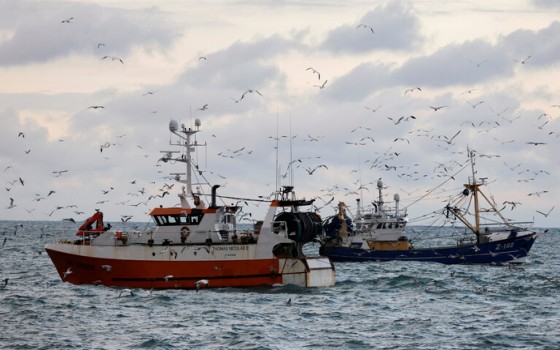

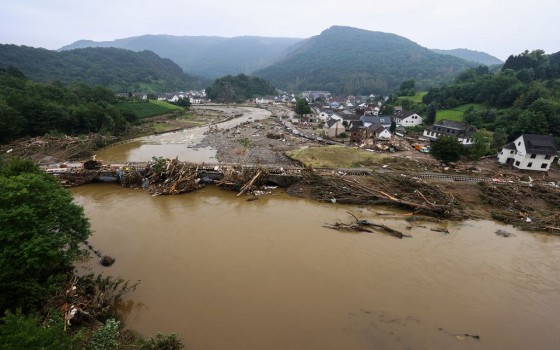
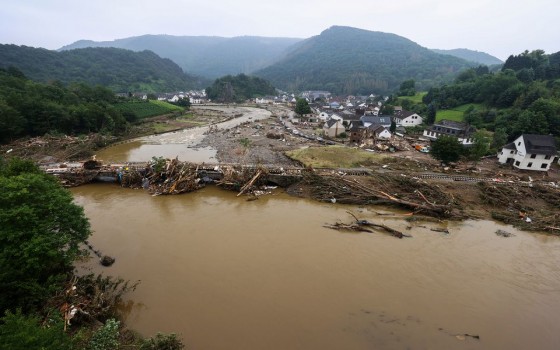


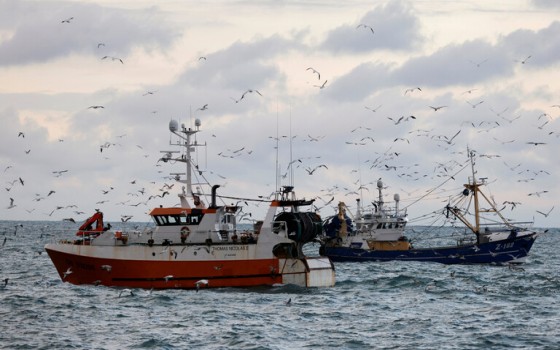



No Comments Found